- Home
- Martin Amis
Yellow Dog Page 2
Yellow Dog Read online
Page 2
Up ahead he picked out a figure that reminded him, or reminded his body, of his first wife – his first wife as she was ten years ago. Pearl would not have had a cigarette in her mouth and a tabloid in her armpit, and nor would her clothes have been quite so brief, so taut, so woman-crammed; but the aggressive or at least sharply defiant stance, the arms disaffectedly folded, the lift of the chin that said that all excuses had now been considered and dismissed … She stood, waiting, in the shadow of a dun-coloured mediumrise. Behind her a male infant lingered, wiggling a stick among the exposed innards of a black plastic bag. As Meo turned to cross over the railtracks he heard her say,
‘Harrison! Move your fucking arse!’
Yes, most regrettable, no doubt; but with his back safely turned Meo did not deny himself a wince of laughter. He was a good modern person; was a liberal, a feminist (indeed a gynocrat: ‘Give the girls a go,’ he’d say. ‘I know it’s asking the earth. Still, we’re no good. Give the girls a go’). But he still found things funny. The woman, after all, had made her meaning plain; and it couldn’t be said that she had minced her words. No: Pearl would have put it differently … He could see the building now, with its variegated Christmas lights, its squirming barber’s pole. Sometimes a descending aeroplane can sound a warning note: one did so, up above – an organ-chord, signalling its own doom.
He stopped and thought: that feeling again. And he sniffed the essential wrongness of the air, with its fucked-up undertaste, as if all the sequiturs had been vacuumed out of it. A yellowworld of faith and fear, and paltry ingenuity. And all of us just flying blind. Then he stepped forward.
Xan Meo went to Hollywood.
‘Good evening.’
‘All right?’ said the barman, as if querying the mental health of someone who still said that: good evening.
‘Yeah mate,’ said Meo comfortably. ‘And yourself?’ This was the thing about him: he was big, he was calm, he was comfortable. ‘Where is everyone?’
‘Football. England. They’ll come steaming in here around eight.’
Meo, who would not be around for that, said, ‘You want to get those uh, plasma screens in. They can watch it in here.’
‘We don’t want em to watch it here. They can watch it in the Worm and Apple. Or the Turk’s Head. And trash that when they lose.’
The cocktail menu had been chalked up on a blackboard above a display of bottles and siphons arranged and set-dressed to resemble downtown Los Angeles. Out-of-scale mannequins of selected moviestars lurched through its streets.
‘I’ll have a …’ There was a drink called a Blowjob. There was a drink called a Boobjob. He thought: it’s like those companies called FCUK and TUNC. Meo shrugged. It was not his intention, now, to ponder the obscenification of everyday life. He said, ‘I’ll have a Shithead. No, a Dickhead. No. Two Dickheads.’
Holding a glass in either hand Xan went out into the paved garden overlooking the canal where, in recent months, on a west-facing bench, usually with Russia at his side, he had consumed many a pensive Club Soda, many a philosophical Virgin Mary. And how much more solemn – how much more august and royal – his thoughts would be, pondering Pearl, alone with his cigarettes and his Dickheads … Meo’s first glance at the motionless green channel rather too studiously confronted him with a dead duck, head down with its feet sticking up like the arms of a pair of spectacles. Dead in the water, abjectly dead: he imagined he could smell it, over and above the elderly medicine of the canal. Like Lucky Ducky or Drakey Lakey, after Foxy Loxy was done.
Xan seemed to be alone in his garden. But then a dapper young man emerged from a Hollywood side-exit, with a mobile phone held to his ear; he seemed briskly bound for the street until he stopped dead and then seemed to grope his way sidewise and steady himself against the canal fencing a few feet away. He acknowledged Xan’s nod with a flicker of his brow and then said clearly, ‘So everything we said, all the vows we exchanged, now mean nothing. Because of Garth. And we both know that’s just an infatuation … You say you love me but I think we have different conceptions of what love really means. To me, love is something sacred, almost ineffable. And now you’re saying that all that, all that …’ He moved off, and his voice was soon lost in the hum of the city. Yes, and that was part of it, the obscenification: loss of pudeur.
Like the dead duck, the worldline of Xan’s first marriage, that attempted universe – dead also. His divorce had been so vicious that even the lawyers had panicked. It was as if the two of them had been trussed together with barbed wire, naked and face-to-face, and then thrown overboard. Your flailings down there, your kicking and clawing: there could be no morality. When Pearl had him arrested for the third time, and he stood at the door of his service flat listening to the charges, Xan knew that he had reached the end of a journey. He had reached the polar opposite of love – a condition far more intense than mere hatred. You want the loved one dead; you want her plane to come down, and never mind about the others on board – those four hundred saps and losers …
But they’d survived; they lived, didn’t they? Xan reckoned that he and Pearl came out pretty well even. And, fantastically, they came out richer than they went in. It was the boys, the two sons, who lost, and it was to them that Xan Meo now raised his glass. ‘I’m sorry,’ he said out loud. ‘I’m sorry. I’m sorry.’ As if in recompense for the waterbird upended in the green canal, a sparrow, a feathered creature of the middle air, hopped on to the bench beside him and, with eerie docility, began to ventilate itself, allowing its wings to thrum and purr, six inches away.
The wind had departed – fled elsewhere. In the west a garish, indeed a porno sunset had established itself. It resembled a titanic firefighting operation, with ethereal engines, cranes, ladders, the spray and foam of hose and standpipe, and the genies of the firemen about their massive work of hell-containment, hell-control.
‘Is that your “bird”?’ said a voice.
Meo acknowledged the passing of his solitude. He looked to his right: the sparrow was still agitating on the arm of the bench, testingly close to his second Dickhead. He looked up: his smiling questioner, a square-looking, almost cubic individual, stood about ten feet away in the weak dusk.
‘Yeah, well it’s all I can pull these days,’ he answered.
The man took a step forward, his thumbs erect on either side of his navel. Recognised, thought Meo. Made.
‘Are you the?’
Expecting that he would soon have a hand to shake, Xan got to his feet. The sparrow did not yet absent itself.
‘Yes. I’m the.’
‘Well I’m Mal.’
‘… Hello there,’ said Xan.
‘Why’d you do it, son?’
At this point it became clear that Mal, despite his air of humorous regret, was a violent man.
Far more surprisingly, it became clear that Xan was a violent man too. That is to say, he suffered from no great deficit of familiarity as the changed forcefield took hold. Violence, triumphally outlandish and unreal, is an ancient category-error – except to the violent. The error having been made, both men would know that from here on in it was endocrinological: a question of gland-management.
‘Why’d I do what?’ said Meo, and took a step forward. He hoped still to avert it; but he would not be going second.
‘Ooh.’
He pronounced it où, as Russia Meo had, so long ago. He went on, ‘I heard you was a bit tasty.’
‘Then you know what to expect,’ he said as levelly as he could (there was an acidic presence in his mouth). ‘If you have it with me.’
‘You went and named him! And I mean that, to me, that is totally, to me—’
‘Named who?’
Mal breathed in and bulged his eyes and loudly whispered, ‘You’ll remember this in pain, boy. J-o-s-e-p-h A-n-d-r-e-w-s.’
‘Joseph Andrews?’
‘Don’t say it. You don’t say it. You named him. You put him there – you placed him. In black and white.’
For t
he first time Meo thought that something else was wrong. The calculations going on inside him might be given as follows: my five inches equals his two stone, and zero real difference in the other thing (time lived). So: it would be close. And the guy seemed too blithe and hammy for close. He couldn’t be that good: look at his suit, his shoes, his hair.
‘You’ll remember this in pain, boy.’
But there is another actor on our stage. But I go to Hollywood but I go to hospital. A man (for it is he, it is he, it is always he), a sinner, shitter, eater, breather, coming up fast on him from behind. Mal is violent, and Xan is violent, but in this third player’s scowl and its nimbus you see an absence of everything that human beings have ever agreed about: all treaties, concordats, all understandings. He is palely and coarsely bald. His eyebrows and eyelashes seem to have been lasered or even blowtorched off his face. And the steam pouring from his mouth as if from a spraycan, on this not intemperate evening, reached out to arm’s length.
Xan heard no footsteps; what he heard was the swish, the shingly soft-shoe, of the hefted cosh. Then the sharp two-finger prod on his shoulder. It wasn’t meant to happen like this. They expected him to turn, and he didn’t turn – he half-turned, then veered and ducked. So the blow intended merely to break his cheekbone or his jawbone was instead received by the cranium, that spacey bulge (in this instance still quite marriageably forested) where so many noble and delicate powers are so trustingly encased.
He crashed, he crunched to his knees, in obliterating defeat: his womanblood, his childblood, taken by his enemy. The physics of it sent his Dickhead twisting up and away. He heard the wet crack, the wet crack of his knees followed by the wet crack of the sliced glass. The world stopped turning, and started turning again – but the other way. Only now after a heartbeat did the sparrow rear up with the whirling of its wings: the little paparazzo of the sparrow.
The sky is falling!
Then the words ‘Get down’ and a second, fervent blow.
The sky is falling, and I’m off to tell the …
Seemingly rigid now, like the statue of a fallen tyrant, he crashed sideways into the damp paving, and lay still.
2. Hal Nine
The King was not in his counting-house, counting out his money. He was in a drawing-room in the Place des Vosges, absorbing some very bad news. The equerry on the armchair opposite was called Brendan Urquhart-Gordon. Between them, lying on the low glass table, was a photograph, face-down, and a pair of tweezers. And the room was like a photograph: for several minutes now neither man had moved or spoken.
A vibration was needed to animate the scene, and it came: the ping of a tuning-fork, as one of the thousand facets in the icy chandelier minutely rearranged itself within that ton of glass.
Henry IX said, ‘What a dreadful world we’re living in, Bugger. I mean, it’s such a ghastly, dreadful … world.’
‘It is indeed, sir. May I suggest a brandy, sir.’
The King nodded. Urquhart-Gordon wielded the handbell. More vibrations: scandalously shrill. The servant, Love, appeared in the distant doorway. Urquhart-Gordon had nothing against Love, but he found it awkward using his name. Who would want a servant called Love?
‘Two large Remy reserve, if you would, Love,’ he called.
The Defender of the Faith – he actually headed the Church of England (Episcopalian) and the Church of Scotland (Presbyterian)—went on: ‘You know, Bugger, this shakes my personal belief. Doesn’t it shake yours?’
‘My personal belief was ever but a slender reed, sir.’
An unlikely expression, perhaps, coming from a man shaped like a cummerbund. Bald, dark, rosy, with Jewish brains (some said) from the mother’s side.
‘Shakes it to the core. These people really are the limit. No. Worse. I suppose it’s all part of some ghastly “ring”?’
‘That is possible, sir.’
‘Why did … How could it be so arranged that such creatures play a part in God’s plen?’
Love reentered and, as he approached, perhaps a dozen clocks, one after the other, began to chime the hour. An instinctively practical man, Urquhart-Gordon reflected that more work would have to be done on the modernisation of the King’s short ‘a’. In times of crisis, especially, it sounded almost prewar. Brendan’s rosy cheeks were for a moment all the rosier as he recalled Henry’s visit, as Prince of Wales, to the trade-union rest-house in Newbiggin-by-the-Sea, and the Prince at the piano singing ‘My Old Man’s a Dustman’: ‘My old men’s a dustman, He wears a dustman’s het, He wears cor-blimey trousers, And he lives in a council flet!’ The Fourth Estate had not been slow to point out that the truth was otherwise: Henry’s old man was Richard IV, and he lived in Buckingham Palace.
Feebly averting his face from the humours of the brandy balloons, Love continued towards them, and still had a fair way to go. It was five past six by the time he left the room.
‘Forgive me, Bugger. My mind’s a blenk. Delivered …?’
‘The photograph was hand-delivered to my rooms in St James’s. In a plain white envelope.’ This envelope Urquhart-Gordon now produced from his case. He handed the transparent zipper-wallet to Henry IX, who gave it a more than averagely puzzled squint. MR BRENDAN URQUHART-GORDON ESQUIRE, and, in the top right-hand corner, Private and Confidential. ‘No accompanying note. Calligraphy and the redundant “Esquire” suggest an uncouth or foreign hand, or an attempt to have us believe as much. Protection will conceivably tell us more.’
Urquhart-Gordon studied the King’s frown. Henry IX normally wore his thick fair hair swiped sideways across his brow. But now in the royal disarray his quiff had collapsed into a baffled fringe, making his eyes look even more beleaguered and inflamed. Henry IX frowned on at him, and in response to this Urquhart-Gordon shrugged and said,
‘We await further communication.’
‘Blickmail?’
‘Well. I would say extortion. It seems reasonably clear that this is not the work of the media, in the usual sense. If it were, then we would be looking at that photograph in some German magazine.’
‘Bugger!’
‘I’m sorry, sir. Or on the Internet.’
With a bedraggled gesture Henry IX reached for the thing on the table. His hand wavered.
‘Use the tweezers, sir, if you would. Turn it with the tweezers, sir.’
The King did so.
He had not seen his daughter naked for perhaps three or four years, and, over and above everything else, he was harrowed, he was bitterly moved, by how much woman was already in her, in his girlchild who still played with her dolls. This, together with the dreaminess, the harmlessness, of the face, caused her father to cover his eyes with his sleeve.
‘Oh Bugger.’
‘Oh Hotty.’
Urquhart-Gordon looked on. A fifteen-year-old girl in what was evidently a white bathtub, with her arms up on the side, her legs folded at an angle in six inches of water: Princess Victoria, in her costume of nudity, her catsuit of nudity, adumbrating womanhood. The conspicuous tan-lines – she seemed, furthermore, to be wearing a spectral bikini – suggested summer. Urquhart-Gordon had checked the scrolled itineraries: all the Princess ever did, apparently, was go on holiday. But she had been back at boarding-school for six weeks and it was now almost November. Why, he wondered, had they waited? There was something about the Princess’s expression that worried him, that additionally disquieted him: the elevation of the pupils … Brendan Urquhart-Gordon’s nickname, by the way, derived from his initials, Henry IX’s from his performance as Hotspur in a school production of Henry IV, Part One.
‘Do you think,’ the King said miserably, ‘that the Princess and a uh, girlfriend might have been messing about with a camera, and uh …’
‘No, sir. And I’m afraid it is highly unlikely that this is the extent of it.’
The King blinked at him. The King always made you spell it out.
‘There must be more photographs of the Princess. In other … poses.’
‘B
ugger!’
‘Forgive me, sir. That was unfortunate. The point is: look at the Princess’s face, sir. That is the face of someone who thinks she’s alone. We must take comfort from the fact that the Princess was and is quite unaware of this really unprecedented intrusion. Quite innocent of it.’
‘Yes. Innocent of it. Innocent of it.’
‘Sir, do I have your permission to activate John Oughtred?’
‘You do. Not another soul, of course.’
Henry IX got to his feet, and so, therefore, did Urquhart-Gordon. They fell into step together, the one so sleek, the other so lean. When the great embrasure of the central window had at last been reached, the two men looked out through the lace, through its weft and warp. Floodlights, cranes, gantries, retractable ladders: the firefighters of the Fourth Estate. It was the eve of the second anniversary of the Queen’s accident. The King was expected to make a statement in the morning before flying back to England and then on to his wife’s bedside. For the Queen was not in the garden, eating bread and honey. She was attached to certain machines, in the Royal Inverness.
‘Well, sir. The family motto.’
The family motto, impressed upon Henry IX by his father, Richard IV, and his grandfather, John II, was unofficial. In Latin it might perhaps have been Prosequare. In English it ran as follows: Get On With It.
‘What have I got tomorrow? The AIDS people or the cancer people?’
‘Neither, sir. The lepers.’
‘The lepers? … Oh yes of course.’

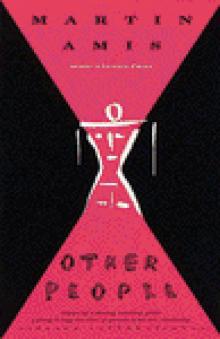 Other People
Other People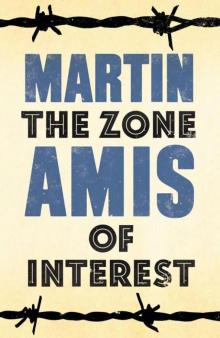 The Zone of Interest
The Zone of Interest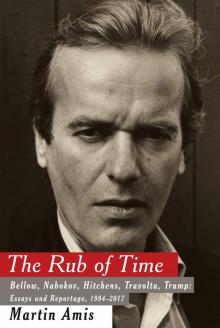 The Rub of Time: Bellow, Nabokov, Hitchens, Travolta, Trump
The Rub of Time: Bellow, Nabokov, Hitchens, Travolta, Trump Koba the Dread
Koba the Dread Success
Success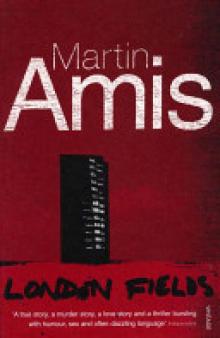 London Fields
London Fields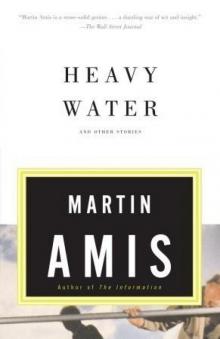 Heavy Water: And Other Stories
Heavy Water: And Other Stories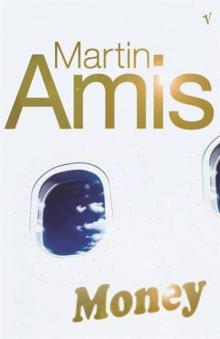 Money
Money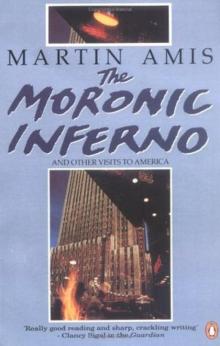 The Moronic Inferno and Other Visits to America
The Moronic Inferno and Other Visits to America Yellow Dog
Yellow Dog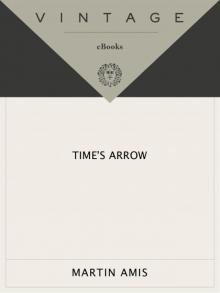 Time's Arrow
Time's Arrow Experience: A Memoir
Experience: A Memoir Einstein's Monsters
Einstein's Monsters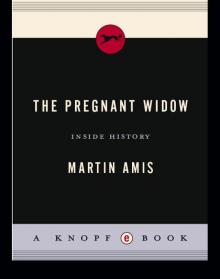 The Pregnant Widow
The Pregnant Widow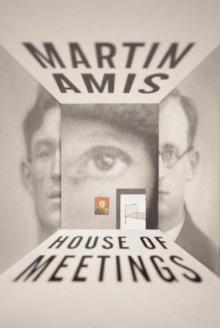 House of Meetings
House of Meetings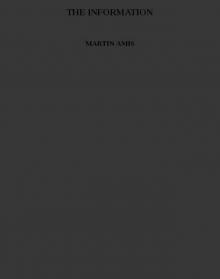 The Information
The Information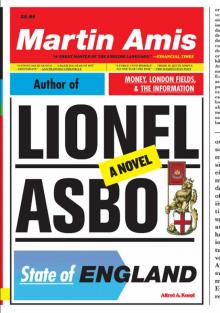 Lionel Asbo: State of England
Lionel Asbo: State of England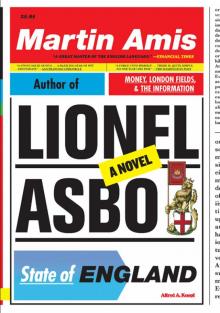 Lionel Asbo
Lionel Asbo Heavy Water and Other Stories
Heavy Water and Other Stories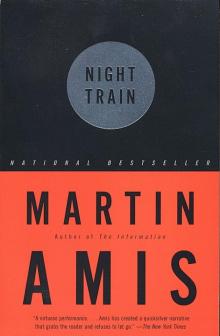 Night Train
Night Train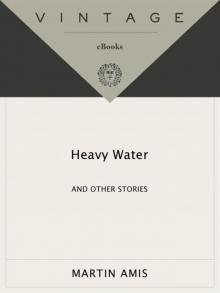 Heavy Water
Heavy Water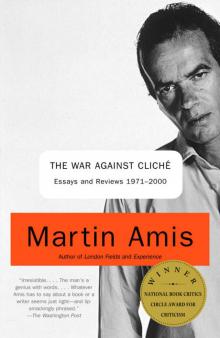 The War Against Cliche: Essays and Reviews 1971-2000 (Vintage International)
The War Against Cliche: Essays and Reviews 1971-2000 (Vintage International)